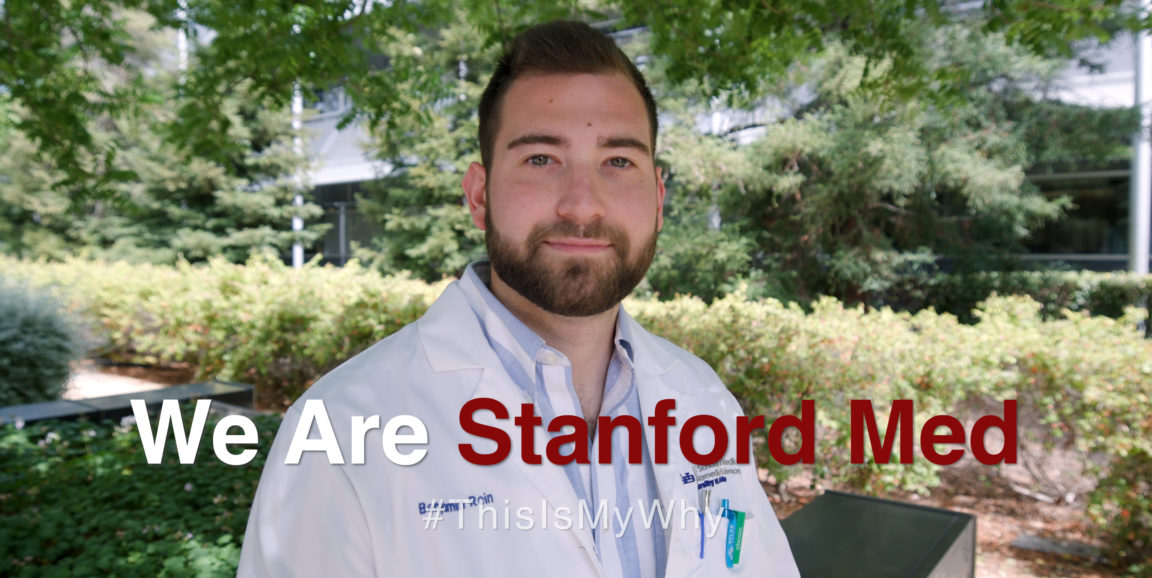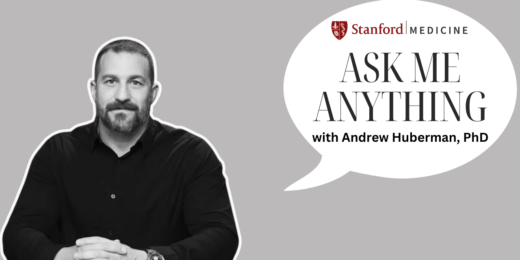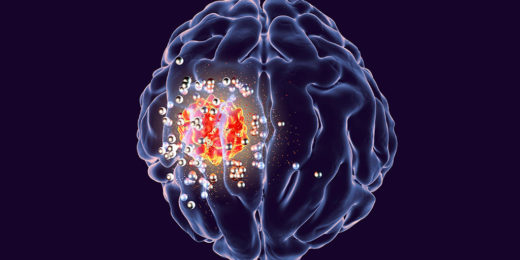They're students, clinicians, scientists and researchers. They're also artists, influencers, patients, scholars and advocates. They hail from all over the globe and come to Stanford Medicine carrying big ideas and dreams. With passions that stretch beyond the lab, classroom and clinic, they share their "why" as they pursue science and medicine.
Growing up, Ben Rein didn't know any scientists, but he was always curious and observant. "I didn't really have any experience with science until I got to college," he said. "But I was always so interested in the way people behaved and why people act the way they do."
Now a Stanford Medicine postdoctoral scholar in neuroscience, Rein was fascinated by the social interactions of his peers in high school. "If you look around a room, you can see people behaving in a wide variety of ways," he said. "What drives that? Is it genetics? Is it experience? Is it parenting?"
In college at West Virginia University, Rein began to explore his interests in science, joining the psychology club and eventually becoming its president. "That's really where all the explosive learning occurred, where I realized I could have a career studying why people behave in certain ways through psychology research," he said. However, his career goals veered in another direction after he experienced a startling nightmare that sparked his curiosity about the inner workings of the brain. The morning after he awoke, he coincidentally had a particularly inspiring day in class, too.
The topic was neuroscience -- more specifically, how fMRI scans and other imaging techniques can assess brain function. "I was like, this is it. This is cool. It's so much more than just asking people how they feel or looking at behaviors. It's quantifiable in a biological sense, and I fell in love with neuroscience."
Taking to social media
Rein switched his focus from psychology to neuroscience and went on to receive a PhD in neuroscience from SUNY Buffalo in 2021, where he studied how certain autism-linked gene mutations can affect brain function.
In the lab of Stanford Medicine professor Rob Malenka, MD, PhD, Rein explores the neural basis of empathy.
Outside the lab, Rein shares educational science videos on social media - something he stumbled on during the pandemic. While at a store buying essentials, he noticed how many people were wearing their masks incorrectly. Rein recorded a 60-second video for family and friends explaining how to use the masks and uploaded it onto TikTok. That video received 1.6 million views. Now, Rein has more than 700,000 followers on the platform. "I realized this was a powerful tool for scientists. Educating, reaching people and getting them excited about science is my number one goal."
Aside from making science accessible to the public, Rein also provides career advice to aspiring scientists, sharing resources for creating CVs and guidance on how to write personal statements, among other skills. "Career paths in science are not always direct or clear. As a student figuring out my path, I needed guidance, and I was very fortunate to have good mentors who helped me figure things out," he said. "Helping students become successful scientists and supporting the next generation is important to me."
Watch the rest of the We Are Stanford Med series here.
Photo by Luceo






